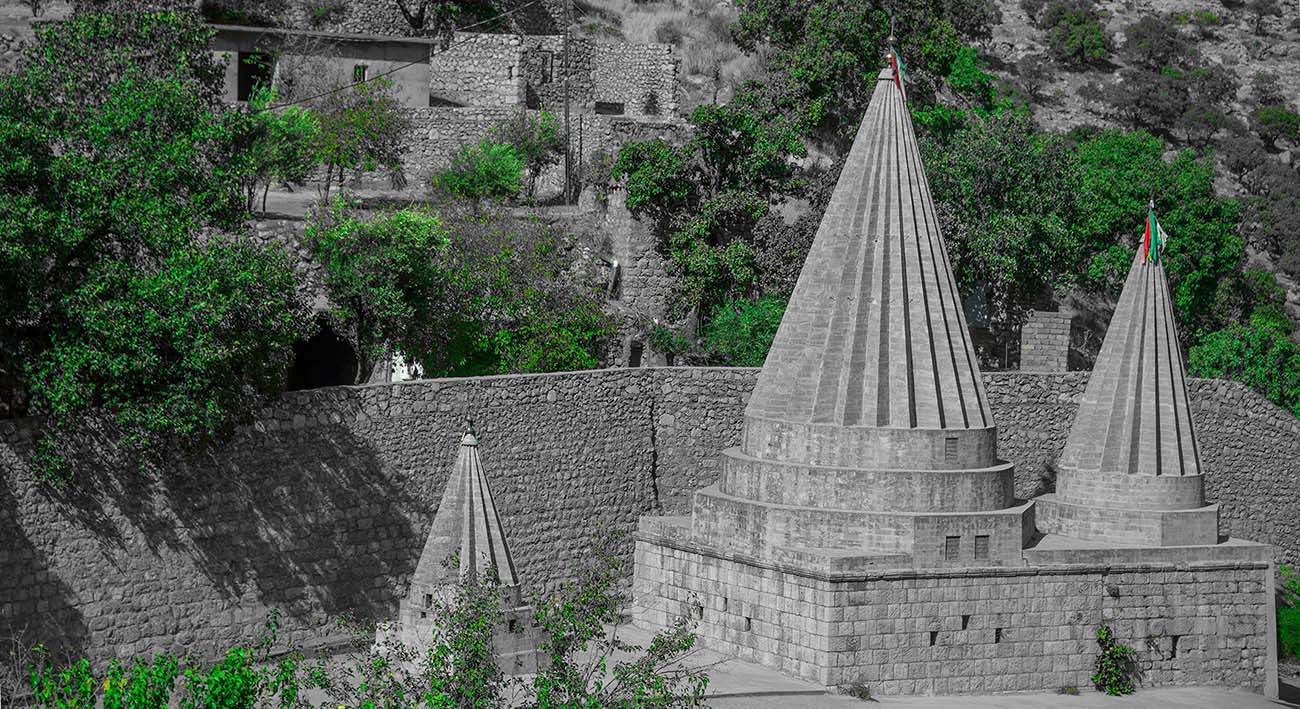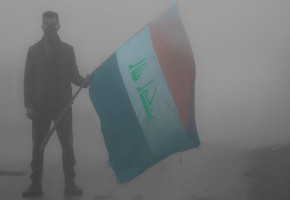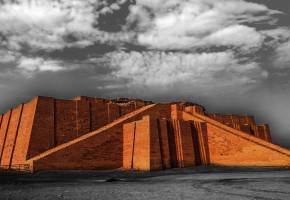

Is it enough to formally recognize religious minorities? - Saad Salloum
Religious minorities lacking formal recognition seek to claim their inclusion in constitutions or at least in future legislation regulating the rights or religious freedoms of minorities. However, does the mere mention of minorities in the constitution guarantee their rights and protection?
Recognition, in the sense of due respect for the status of all human beings as holders of rights to freedom of religion or belief, stems from the inherent dignity of all members of the human family. However, this seems difficult to achieve in most Middle East countries, as the scope of understanding freedom of religion and belief is narrow and exclusive and does not coincide with the broad understanding of freedom of religion and belief. It also requires achieving other levels of recognition that are no less important than formal recognition.
Formal recognition is only the first step
Article 3 of the Iraqi Constitution of 2005 indicated that “Iraq is a country of many nationalities, religions, and sects,” thus recognizing the religious, national, and sectarian pluralism of Iraqi society. However, Article 2 reverts to establishing an exclusive status for some religious minorities at the expense of others. It states that the constitution guarantees "the preservation of the Islamic identity of the majority of the Iraqi people, and also guarantees the full religious rights of all individuals to freedom of religious belief and practice, such as Christians, Yazidis, and Mandaeans."
Mentioning certain minorities in the constitution is an exclusive limitation of officially recognized minorities. It raises the concerns of minorities not mentioned in the constitutional article. Therefore, there were calls to amend the constitution to mention groups such as Zoroastrians, Baha'is, and Kakais. The relevance of this level of recognition lies in ensuring that the state recognizes the status of the legal personality of religious communities in a way that enables them to take collective legal measures. It becomes more important when some religions are banned, as is the case with the Baha’i faith, which has been facing legislative prohibition since the time of the Ba’ath regime (the Law Prohibiting Baha’i Acts of 1970). Moreover, it is imperative during challenges related to religious sects that were not previously recognized, such as the Zoroastrians and the Kakais, and in the event of a veto by some official religious denominations against another described as "immigrant" or unrecognized (such as evangelical churches whose existence is rejected by officially recognized Christian denominations).
In comparison, the recognition of religious minorities in the Kurdistan region of Iraq appears to be more comprehensive in scope. Law No.5 of 2015 on protecting the rights of components in the Kurdistan Region - Iraq stipulated in Article 1, paragraph 2, the recognition of religious and sectarian groups (including Christian, Yazidi, Sabean-Mandaean, Kakai, Shabak, Faili, Zoroastrian) as citizens of Iraqi Kurdistan. This leaves hope for minorities not mentioned in the constitution that they will not be overlooked in the event that similar legislation is passed by the Federal Parliament.
Recognition by the religious establishment is no less important
Religious minorities believe that formal recognition remains incomplete without the Islamic religious establishment recognizing their religion on an equal footing. A case in point is the Mandaeans (followers of John the Baptist) in Iraq, who demand recognition as a monotheistic religion. This was one of the main motives for translating and publishing their holy book "Kinza Riba" into Arabic in 2000, as I was told by a member of the committee supervising the book's translation. He added that the Mandaeans felt it was necessary to translate their Bible into a language understood by others to answer all questions of an accusatory nature and address the false stereotypes about them. The translation of the Bible had a positive impact on the position of Islamic religious authorities regarding their beliefs in subsequent years and contributed to clarifying their monotheistic beliefs. They sent copies of the Bible to many Islamic spiritual authorities in Iraq, Iran, and Egypt, including Sheikh of Al-Azhar in Cairo Muhammad Tantawi. They even gifted copies to Arab heads of state and cultural figures in the Arab world.
The Yazidis also tried to obtain a minimum level of attention from the Islamic religious establishment in condemning the actions of ISIS against them. Yazidi survivor and Nobel Peace Prize laureate Nadia Murad met with the Sheikh of Al-Azhar Imam Ahmed Al-Tayyib. However, their demands went further than the condemnation of ISIS's criminal behavior against non-Muslim religious minorities to ask for a fatwa recognizing the Yazidi faith as a monotheistic religion. They felt that simply mentioning them in the constitution did not provide them sufficient protection.
Social recognition and confronting hate speech
The recognition system cannot be reduced to the formal, legal level in the constitution and legislation or to its political level by granting a quota in parliament. Recognition requires correcting the stereotypical and distorted image of the rest of the religious minorities to ensure equality and non-discrimination on the broader social level. Therefore, recognition at the social level, in a way that enhances popular acceptance, requires the removal of layers of prejudices and misconceptions. Ignorance of the beliefs of religious minorities and the persistence of stereotypes and distortion are used as a justification for discrimination against minorities, targeting them, violating their rights, and depriving them of their humanity.
For example, a group of myths and illusions revolve around the nature of Christian religious beliefs and monotheism's place in Christian theology. Illusions are woven about the nature of their relationship with the Christian West. The seriousness of the consequences of some of these stereotypes is linked to the political transformations taking place in the country. They include the attempt to hold the Christians of Iraq partially responsible for the US occupation and targeting them for embracing the religion of the occupier without regard to the nature of the differences between Eastern and Western Christianity and the political employment of Religion in the conflict between West and East.
Yazidi beliefs are also often misunderstood and placed under the lens of skepticism. Layers of stereotypes and ready-made judgments against this religious group emerge all the time. Perhaps the most famous and dangerous stereotype considers them worshipers of Satan. It is the source of all common delusions and errors regarding Yazidis as worshiping the god of evil.
These stereotypes must be addressed by modifying public school curricula to introduce religious beliefs and providing platforms through public media. Such a task is entrusted to the state in terms of combating discrimination against religious minorities and consolidating social acceptance. Removing these stereotypes requires a broad cultural movement. Improving representation and political participation is not enough without working to remove the wrong and distorted ideas about minorities by reforming the school curricula in a way that defines minorities and their role, representing a form of recognition on the one hand, and an attempt to remove confusion and correct misconceptions and stereotypes, on the other.
The integration of the three levels of recognition, official recognition, recognition by the Islamic religious institution, and social recognition guarantees the achievement of a degree of equality and fairness, not to mention resisting stereotypes and containing hate speech against others from other religions.
Links:
The law criminalizing Bahai activities - Link
Law No.5 of 2015, Protecting the rights of components in Kurdistan-Iraq, issued by the decision of the Presidency of the Kurdistan Region-Iraq, No.9 of 2015. - Link
Nadia Mourad's meeting with Al-Azhar's Sheikh - Link
A Diversity Institute Teaches Iraqi Students About Religious Minorities - Link
Delayed official recognition of minorities in Iraq: Reinforcing feelings of fear and sectarian identities - Link
Some stereotypes on Mandaeans - Link
Recent publications

Thematic Report: Exploiting Resources, Ignoring Rights: A Political Ecology of Water and Energy in the Arab World
Related publications


